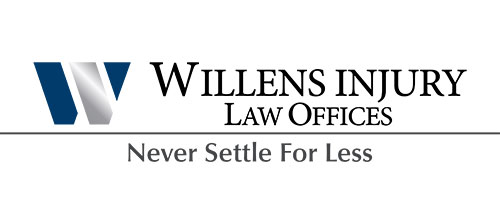Illinois nursing homes are frequent and continuing subjects of complaints. The State’s Department of Public Health maintains a 24 hour-a-day Nursing Home Hotline. It gets nearly 19,000 calls annually. Over the years, nursing homes have been responsible for neglect, abuse, and all manner of misconduct. Anyone with a loved one inside a nursing home should be alarmed by these statistics. These numbers demand that friends and family must always look for warning signs. Here’s what to know if you suspect that someone you love or know may be getting poor or abusive treatment at a nursing home.
Common Complaints
Some common complaints in nursing homes include:
- Decubitus ulcers, bed Sores, and pressure sores
- Refusal to bill Medicare
- Malnutrition, dehydration, or choking
- Excessive use of feeding tubes
- Sepsis
- Medication errors
- Incorrect use of physical restraints
- Physical or chemical restraints
- Wandering and elopement from facilities
- Unnecessary falls
- Verbal abuse
- Physical and sexual abuse
- Losing therapy for supposed failure to make progress resident burns
- Mistreatment of patients with other forms of dementia and Alzheimer’s
- Discrimination against Residents
- Disregarding of Resident preferences
- Threatening to refuse medical treatment
- Clogged or Mishandled Breathing Tubes
- Improper administration of behavior-modifying medication
- Forcing residents to give up legal rights
- Imposing visiting hours on families and friends
- Refusal to accept Medicaid
- Wrongful eviction for being ‘difficult’
- Forced transfer within nursing home after Medicare payment ends
- Forcing family members and friends to pay financial liability
- Excessive charges
It’s not just patients who can complain about nursing homes. Social care workers and nursing staff can also report violations from unethical employment practices to improper care of residents. According to the Illinois Nursing Home Care Act & the Illinois Whistleblower Act, nursing home staff can report violations of the regulation or the law about nursing home residents without worrying about threats or retaliation from the institution.
Filing the Complaint
The Illinois Department of Public Health’s Bureau (IDPH) of Long-term Care regulates nursing homes in Illinois. The primary responsibility of the agency is to guarantee that the nursing homes abide by the Nursing Home Care Act concerning patient rights, mistakes in treating patients, and even infection control. If you think that you, your loved one, or someone you know has been harmed because of nursing home negligence or a violation of the law, then you can file a complaint through the following ways:
- Contacting the nursing home hotline via 1(800)-252-4343 or 1(800)-547-0466 (for hearing impaired individuals)
- Submitting a health care facilities complaint form to:
Illinois Department of Public Health
Office of Health Care Regulation
Central Complaint Registry
525 W. Jefferson St., Ground Floor
Springfield, IL 62761-0001
- Faxing your form to (217)-524-8885
To strengthen your case, include the following information in your complaint:
- parties involved (patient, staff, and so on)
- details of the allegation (be as accurate as possible)
- when the charges occurred (best to provide a timeline)
- where did it or they happen (specify the room etc.)
- additional details like what was the response of the facility
Some people do not report nursing home abuse for fear of repercussions or retaliation. Don’t worry. IDPH keeps the identities of the complainants confidential. If you still fear a backlash, then you can file your complaint anonymously, but it may be challenging to follow up on the progress and outcome of the case.
What Happens Following A Complaint
IDPH will set an inspection–called survey–of the facility. This allows public health officials to check details of your complaint by checking the facilities and interviewing residents and staff. If the survey team finds that the nursing home violated regulations, then IDPH will issue a deficiency notice. After receiving the notice, the nursing home should:
- Submit a plan of correction – the plan should provide details and steps of how the nursing home plans to address the issue and prevent it from happening again. Usually, this will also include termination of staff and re-training those left.
- Contest the findings – the nursing home will probably challenge the results and if they can prove the survey team did not investigate properly, then they can get the notice of deficiency retracted. However, if the nursing homes fails to justify their side of the story, then they may face monetary fines or harsher punishment. A penalty may incur a $10,000 fine for each violation. Violations of federal standards, on the other hand, can result in fines from $50 to $10,000 per day. Repeat offenders may eventually lose their Medicaid or Medicare certification. If the situation is serious enough, a nursing home can risk facing closure.
If you wish to file a complaint against a nursing home facility then hiring an attorney will make things easier. He or she can assist you in submitting the right forms and in handling any claim successfully. Contact us today for more details on how we can help you.












